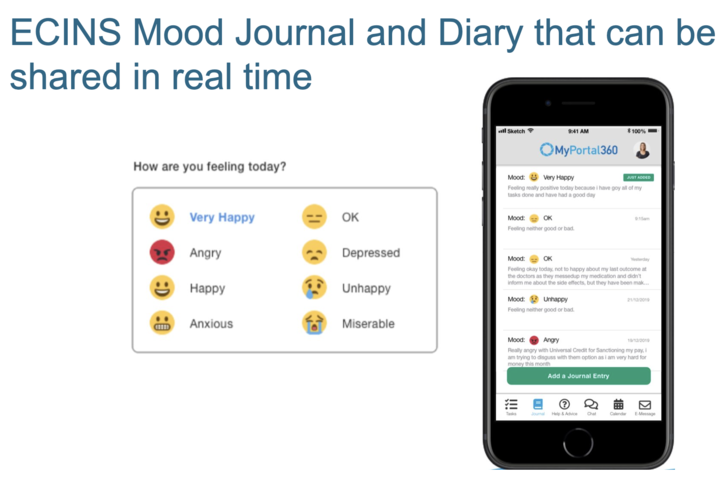In today’s fast-paced and demanding world, mental health has become a topic of utmost importance. Young people, in particular, face numerous challenges that can have a detrimental impact on their well-being. However, there are strategies and tools that can help them navigate these difficulties. One such tool is a mood journal, which not only provides personal insight but can also be shared with trusted individuals. In this post, we explore the mental health benefits of young people sharing a mood journal and why we included this feature in the ECINS Student Engagement Module.
1. Promotes Self-awareness:
Keeping a mood journal allows young people to develop a deeper understanding of their thoughts, emotions, and behaviors. By regularly recording their moods and experiences, they can identify patterns and triggers that affect their mental well-being. This self-awareness enables them to make informed decisions and take proactive steps towards maintaining good mental health.
2. Provides Emotional Outlet:
Expressing emotions and thoughts through writing can be a cathartic experience. A mood journal provides a safe space for young people to document their feelings without judgment. Sharing these entries with trusted individuals can further amplify the emotional release and foster a sense of connection and support.
3. Enhances Communication Skills:
Sharing a mood journal with someone they trust, such as a school social worker or mental health professional, allows young people to express their thoughts and emotions more effectively. Through the journal entries, they can articulate their experiences, clarify their feelings, and communicate their needs and concerns. This process not only strengthens their communication skills but also empowers them to seek the help they may require.
4. Builds Supportive Relationships:
Sharing a mood journal can deepen trust and intimacy between young people and their confidants. When others read their journal entries, they gain insight into their inner world, enabling them to offer empathy and support. This act of sharing fosters understanding and can lead to the formation of strong, supportive relationships that contribute to improved mental well-being and better outcomes for the young person.
Conclusion:
Taking care of mental health is vital for young people, and sharing a mood journal can be a powerful tool in this process. By enhancing self-awareness, providing a safe emotional outlet, improving communication skills, and fostering supportive relationships, a mood journal encourages young individuals to proactively address their mental health concerns. Through sharing their experiences with others, they can find solace, understanding, and the support they need to lead happy and fulfilling lives. In the development of the ECINS Student Engagement Module we created the ability for the students mood journal to be shared in real-time, with the aim of helping to improve mental health. Young people considering starting a mood journal can be reassured that though the MyPortal360 they are only sharing information with trusted individuals who are committed to helping them on their journey towards well-being.


